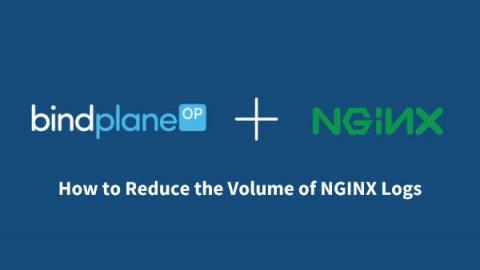Operations | Monitoring | ITSM | DevOps | Cloud
Latest News
Enhance network monitoring with the latest AI-powered features in OpManager
Network monitoring is a challenging job because networks continue to evolve to meet ever-changing client requirements. Businesses today heavily depend on their networks, and even a short outage can lead to penalties and lost profits. This is why your monitoring tool must also transform itself to not only scale as you grow but offer new features that address new challenges posed by the increasing usage demands placed on your network.
How to Reduce the Volume of NGINX Logs
A gentle introduction to XDP
XDP, or eXpress Data Path, is a Linux networking feature that enables you to create high-performance packet-processing programs that run in the kernel. Introduced in Linux 4.8 and built on extended Berkeley Packet Filter (eBPF), XDP provides a mechanism to process network packets earlier and faster than is possible through the kernel’s native network stack. In this post, we’ll discuss.
How container networking works at Platform.sh
At Platform.sh, we run containers. Lots and lots of containers. On hundreds of virtual machines rented from various IaaS providers. These containers run your software. They also team up with other containers that run other software that your software depends upon (such as databases or caches). This is naturally an extremely complex system, and today we'll take a look at how we wire (most of) it up.
40 Best Cloud Network Monitoring Tools of 2023 for All Platforms and Giants like AWS, Google, Azure, IBM, and Oracle
Top 30 Network Connection Monitoring Tools for Seamless Connectivity
The Ins-and-Outs of Hardware Monitoring
Avid PC gamers know that if you want optimal performance, you have to push your computer to its limits. And if your gaming “rig” is not properly equipped with a large interior fan, your PC can overheat, resulting in more than a few performance issues. It is the same for enterprise-level devices or pieces of hardware: overheating creates problems. One such enterprise-level piece of hardware (and arguably the most crucial piece of equipment) is a server.
Modernizing Network Data Analytics With a Unified Data Repository
Analyzing multiple databases using multiple tools on multiple screens is error-prone, slow, and tedious at best. Yet, that’s exactly how many network operators perform analytics on the telemetry they collect from switches, routers, firewalls, and so on. A unified data repository unifies all of that data in a single database that can be organized, secured, queried, and analyzed better than when working with disparate tools.
IT Operations in 2023: AI/ML & Automation Will Continue to Be the North Star
The use of statistics, advanced algorithms and AI/Ml is becoming omnipresent. The benefits are visible in every walk of life, from web searches, to movie and retail recommendations, to auto-completing our emails. Of course, not many anticipated the dramatic entrance of generative AI in the form of ChatGPT for writing college essays and poetry on arcane topics.











